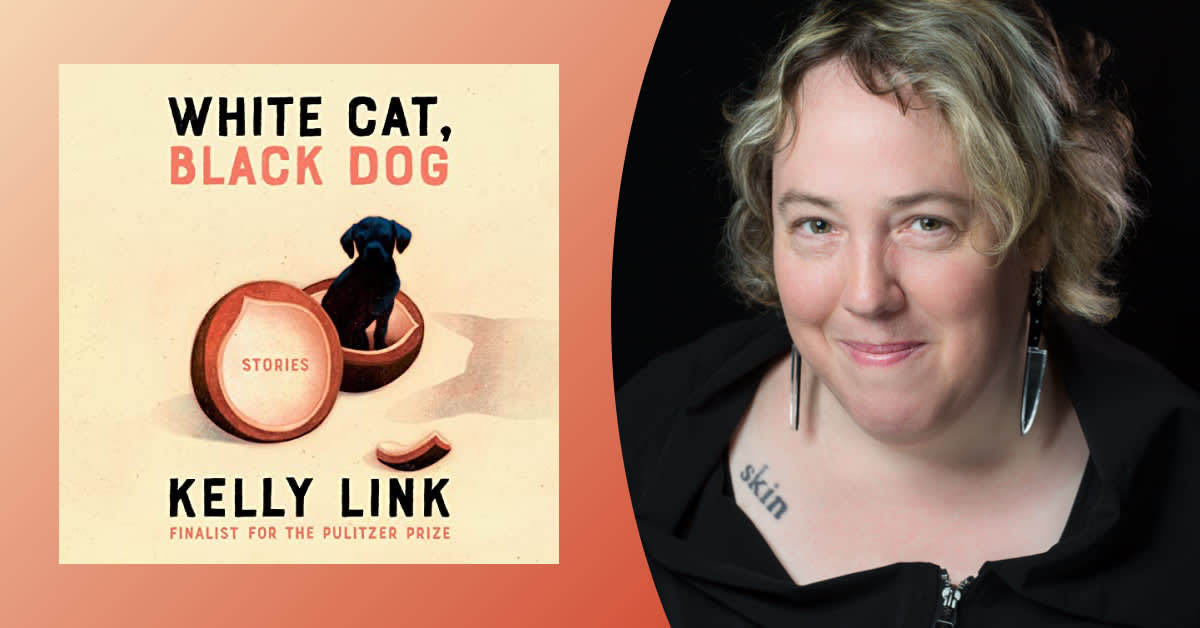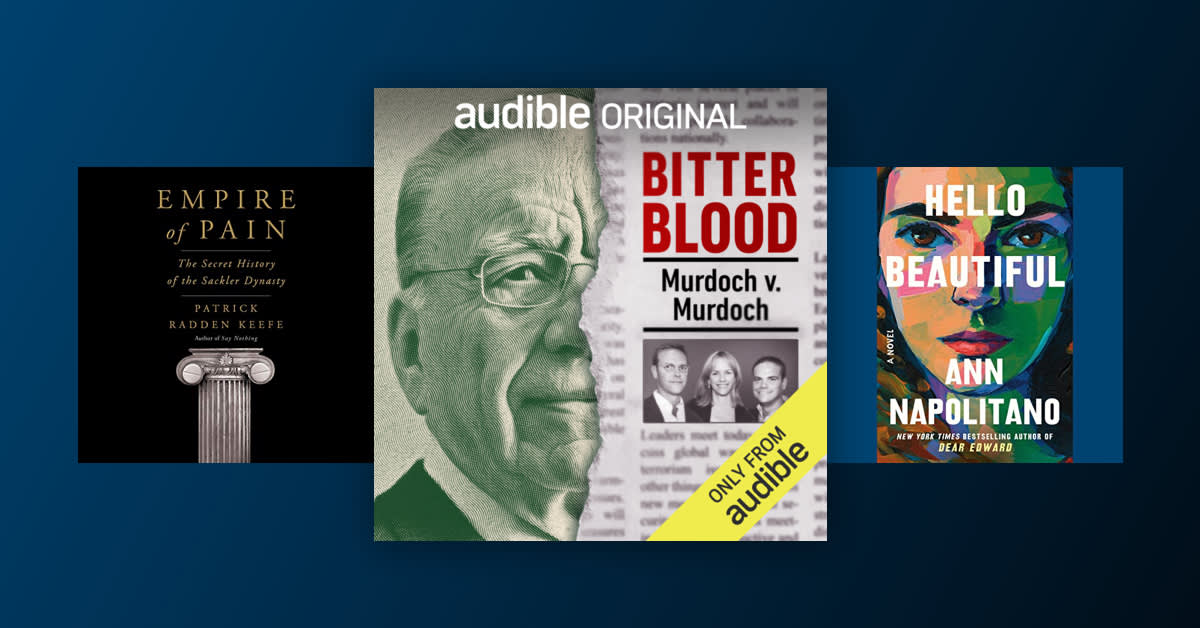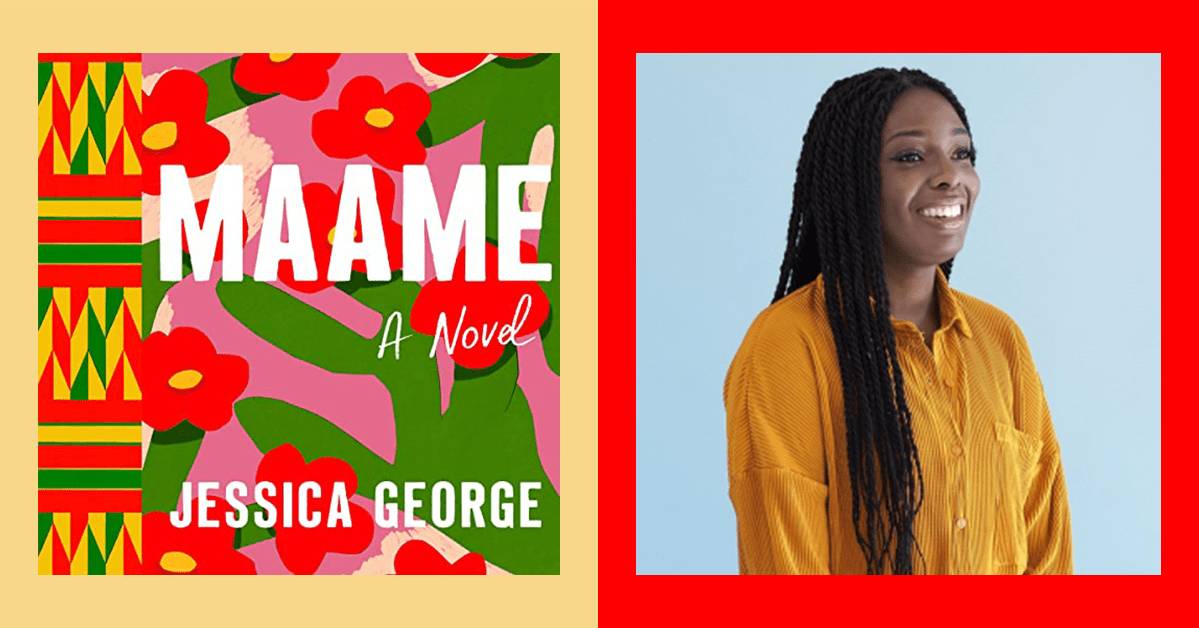MacArthur "Genius Grant" recipient and short story master Kelly Link is the author of dazzlingly imaginative and wickedly entertaining short fiction that could be written by no one else on Earth. Her newest collection, White Cat, Black Dog is a dark jewel box of reinvented fairy tales, each based on a classic folk story but with a decidedly contemporary point of view. Seven unexpected yet perfectly cast narrators bring the collection to life (including my personal favorite, Patton Oswalt, who reads the standout final story with spot-on inflection and just the right mix of wonder and exasperation), making Link's exquisite craftsmanship thrilling to experience in audio. I asked her about some of the influences and process behind the audiobook.
Audible: Your new collection includes cannabis-farming cats, Succession-worthy billionaire sibling rivalry, and a dog tiny enough to fit in a nutshell—and that’s just the first story! Can you talk about some of your influences in writing White Cat, Black Dog and where you think your wildest ideas come from?
Kelly Link: Fairy tales have always been a source of inspiration for me. They’re some of the first stories that I not only read but knew by heart. I’m also a huge fan of Angela Carter’s retellings, as well as more recent collections like Daniel Lavery’s The Merry Spinster, or Ellen Datlow and Terri Windling’s many anthologies, where some of my favorite writers reworked fairy tales. (White Cat, Black Dog is dedicated to Datlow and Windling.)
Once I knew that I wanted to organize a collection around fairy tales, I wanted to make sure that I did this in a way that felt liberating rather than confining, oriented toward pleasure and surprise rather than cleverness. I wanted a feeling that anything might happen but that when strange things did happen, there was always a reason, and that my characters had space for emotional expressiveness and psychological realism and a certain amount of bad behavior.
One of the most pleasing aspects of using fairy tales for me is that animals feature so prominently. They pop up in most of these stories, get to say and do unnerving or helpful things, and have their own agendas.
Despite your abundant imagination, you’ve openly described the writing process as challenging. Your pinned tweet is “the desire to get some writing done vs. my ongoing commitment to hedonism.” [NB: Everyone please go follow the delightful @haszombiesinit!] Can you share a bit of your writing process with us?
I’m so glad you’ve enjoyed seeing me on Twitter! I’m on Mastodon now too, under my own name. And Twitter certainly plays a part in how I work. I need a fair amount of distraction in order to get out of my own way when I’m writing. And so I listen to playlists, I pop in and out of Twitter, I read The Guardian, I go down rabbit holes—all while I’m thinking about what needs to happen in a particular scene or to make a particular character feel more real.
I go for walks too, or swim, if there’s a body of water available. I do some of my best problem solving at the bottom of a pool. And I revise, constantly.
Before I begin something new, I usually have a fairly coherent idea of what a story will be about, and what the ending will look and feel like. The hard part of writing for me is to find the beginning and the sense of characters that will get me to the ending that I have in mind.
What advice do you have for writers struggling to achieve the balance between hedonism/living life and actually sitting down to write? Have you learned any habits or tips that make the balance less excruciating?
Write the kinds of stories that would bring you pleasure to read. Write about the things that most interest you, that make you feel something. Don’t be afraid of your own interests, your own obsessions—lean into them. And when you are struggling to sit down and write, make a pact with yourself that you will set at least a minimal goal for time or for sentences. Make yourself sit down for a half hour. Make yourself write even five sentences. They don’t have to be good ones!
And if you hate the sight of your own words in the early stages of writing, try typing out a page or two of a short story or novel by a writer that you love. I think of this as a kind of finger-exercises warm-up—it gives the brain and fingers a chance to see and feel narrative on the page. After you’ve typed out something that you loved as a reader, you can go on and do some of your own writing. It may flow a little easier.
And finally, when you come up with an idea for a story that you like or write a sentence (or a paragraph or a scene) that you think is pretty good, tell yourself, “That’s pretty good! Give me more stuff like that.” This is a trick I learned from the writer and editor Kate Wilhelm. She says that it’s just as important to acknowledge to yourself when you are doing good work as it is to acknowledge when something feels like it isn’t working. If you don’t welcome good ideas and good writing, the part of your brain that supplies them will eventually stop offering them. But when you consciously recognize the work that you want to do, it flows more readily.
What’s the last great thing you read or listened to? Any literary or audio obsessions you’d love to share?
So many recommendations! I loved, loved, loved Megan Gidding’s The Women Could Fly. I’m savoring Sofia Samatar’s first nonfiction project, The White Mosque. Mariana Enriquez’s Our Share of Night is a terrifying, splendid monstrosity of a gothic. And I will always recommend Molly Gloss’s historical western, The Hearts of Horses. I’m currently listening to audiobooks of Tamsyn Muir’s Locked Tomb series—I’ve read the physical books, but Moira Quirk is a fantastic narrator. Anisha Dadia, who narrates Naomi Novik’s Scholomance series, is terrific too.
The audio cast of White Cat, Black Dog is truly inspired: Dan Stevens, Patton Oswalt, Kristin Sieh, Dominic Hoffman! Can you share any details behind the narration?
Some of these readers, like Kristin Sieh and Dominic Hoffman, I knew and loved already from other Audible audiobooks. I feel incredibly lucky that Patton Oswalt and Dan Stevens had the time and willingness to read stories. Ish Klein is a poet and friend who previously read a story for the audiobook of Get in Trouble. I haven’t heard the audiobook yet, but I can’t wait!
White Cat, Black Dog is available on Audible now.







